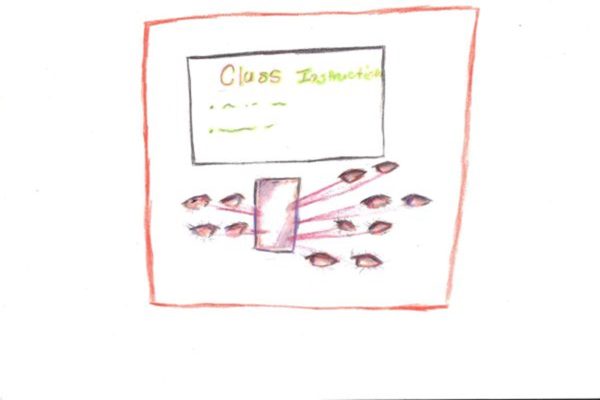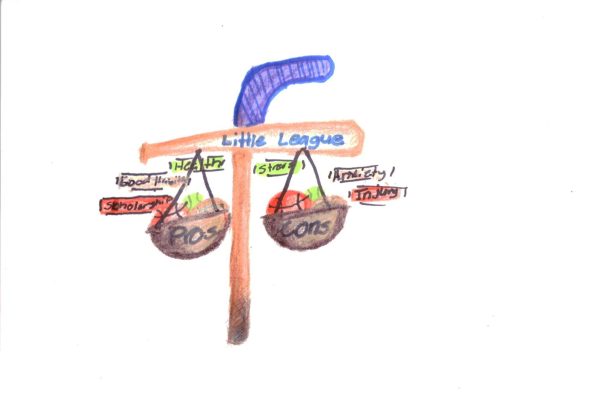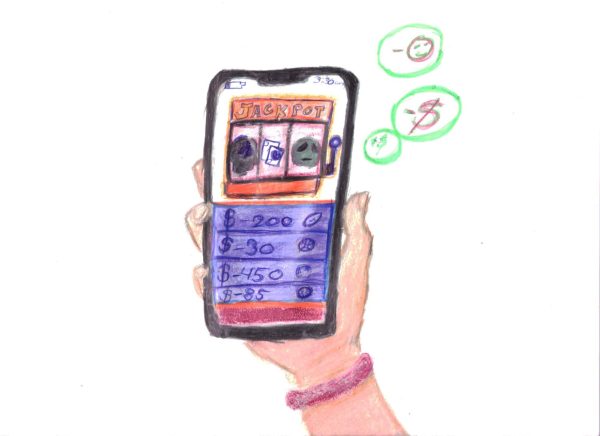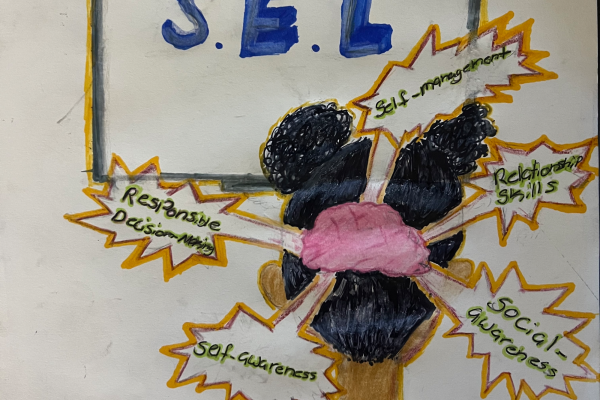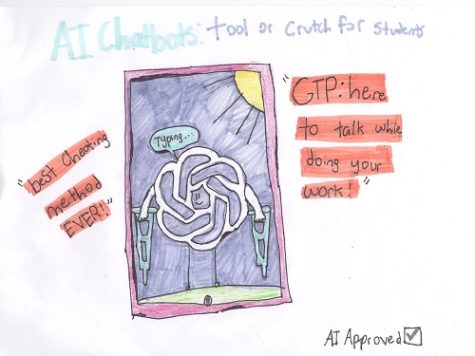Dividing the nation: are politics affecting relationships?
“We must end this uncivil war that pits red against blue, rural versus urban, conservative versus liberal. We can do this if we open our souls instead of hardening our hearts. If we show a little tolerance and humility.” President Joe Biden said in his inaugural address.
An established table etiquette rule states that politics should never be discussed at the dinner table. In recent years, however, this rule has become more relevant as politics divide the nation in a drastic way.
One only needs to watch any news station, read news online, or check social media sites to know that the political climate in America has grown to be extremely hostile and divisive after a series of events have swept the nation such as mass shootings, a worldwide pandemic, racial protests, storming of government buildings or an insurrection, and controversial politicians. The nature of these events, in turn, causes reactions to be less diverse, creating tension between different viewpoints.
According to Pew Research Center, the Democratic and Republican parties are currently farther apart in their ideologies than they have been in the past 50 years. Many people now identify with the more extreme side of their respective parties in regard to policy, social issues, and economics. This has made politics an even trickier topic than before now because many people are holding such a strong variety of opinions. The middle ground between parties is seemingly becoming ever smaller, which causes friction not only within the government itself, but in the homes of American citizens as well.
Furthermore, individual political opinions have become drastically public as people post their beliefs on social media or sport an excessive amount of merchandise for the red or blue side they support. Politics have become more commercialized as well, resulting in a bandwagon effect; people jumping on either side of the aisle and following everything that side in particular stands for rather than forming their own opinions. Ultimately, this bandwagon effect has led to animosity between the sides because many people view them as opposing teams, instead of simply showing respect for differing viewpoints. After all, both sides’ theme is that they are all working to improve the country in the way they seem is best.
Professionalism and respect have faded in America’s political climate, explaining why many people have let political opinions affect their relationships with others.
A poll conducted by Siena College and the New York Times states that nearly one in five voters reported that their relationships with others have been negatively affected by politics. The debates that occur over politics often are incredibly heated and passionate which can lead to a falling out between friends or family.
This begs the question: are politics more important than personal relationships?
Political affiliation does not define who someone is as a person. In fact, simply judging a person on political opinion alone pushes stereotypes that may or may not fit. A person’s character and how they treat others is more important than what they put on a ballot. Not only is burning a bridge over a difference in opinion immature, but it also promotes intolerance, which is already a big enough problem in America with racism, homophobia, misogyny, etc. Everyone has different opinions and it is important for people to be respectful even if they disagree with them. Political opinions are personal and should not be used as a deciding factor in ending a relationship.
However, one could argue that the political climate is not changing anytime soon, so why should people make an effort to repair relationships with someone who doesn’t respect the other’s opinions?
According to a poll conducted by the Harvard Institute of Politics, many young voters feel as if they are “under attack” for their political views. This can severely affect a person’s mental health and sometimes the best option is to cut off the source which unfortunately could be a friend, partner, or even family member. In addition, sometimes people’s political views can reflect hatred and prejudice, especially on topics of social issues and equality. In situations like that, a person might become a target of that hate which can be invalidating, uncomfortable, and even unsafe at times.
Still, it is important to keep an open mind and be accepting of others even if one may disagree with who the other votes for. Red and Blue can co-exist if people start practicing tolerance and respect for others’ opinions. Keeping a calm and respectful tone while discussing politics can also go a long way.
At the end of the day, the political polarization in America can be resolved with tolerance. Different opinions are all around and whether a person agrees or disagrees most are trying to make America a better place.


